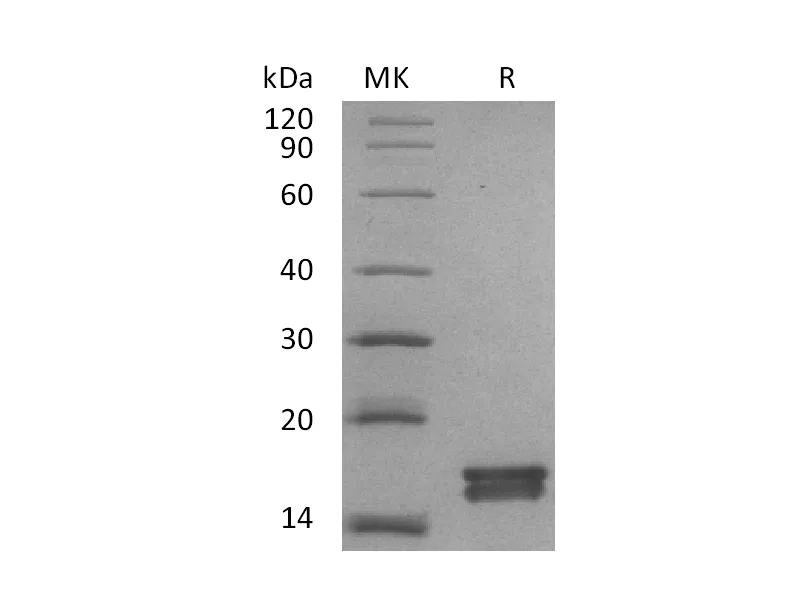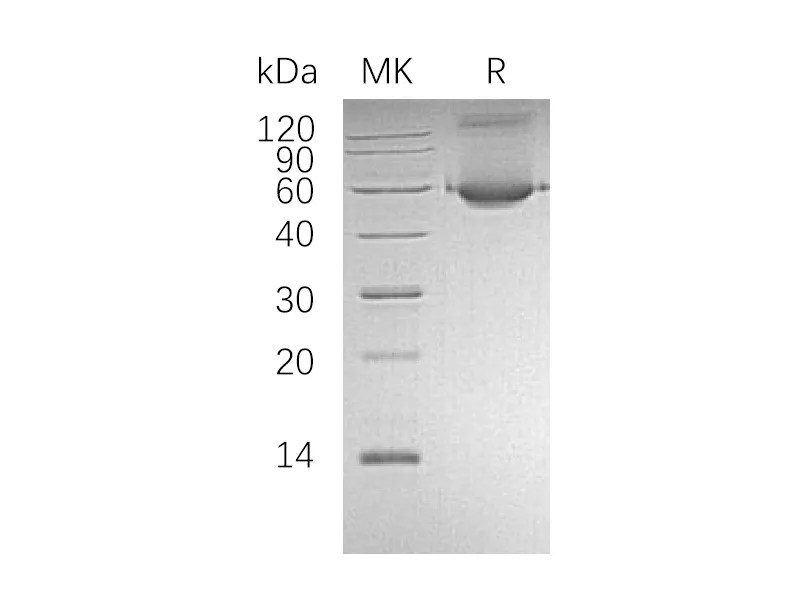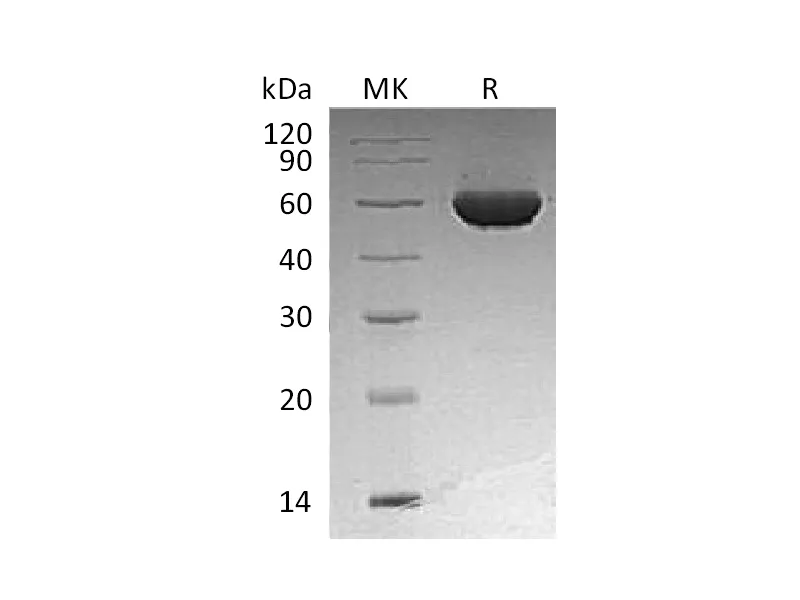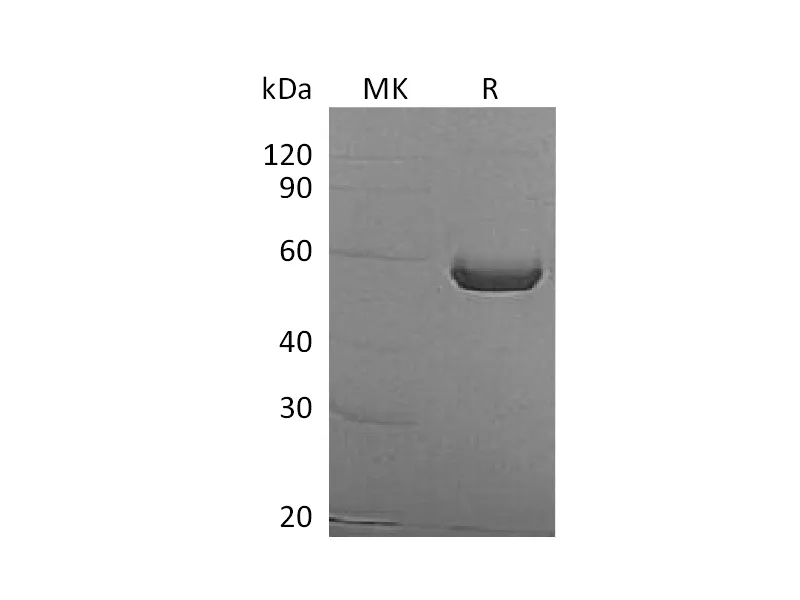Alternative Names
Megakaryocyte potentiating factor; mesothelin; Pre-pro-megakaryocyte-potentiating factor; soluble MPF mesothelin related protein; CAK1; MPF; MSLN; SMR; CAK1; CAK1 antigen
Background
Mesothelin is a cell surface glycoprotein whose expression is limited to mesothelial cells of the serosa (pleura, pericardium, and peritoneum) and epithelial cells of the trachea, tonsils, fallopian tube, and kidneys. Mesothelin plays an important role in cell survival, proliferation, migration, invasion, tumor progression, and resistance to chemotherapy. The overexpression of mesothelin can activate NF-κB and signal transducer and activator of transcription 3 (Stat3), inhibit apoptotic signaling and TNF-α-induced apoptosis, and accelerate the G1–S transition. Mesothelin is also found overexpressed in various cancers, including malignant mesothelioma, pancreatic or ovarian carcinoma, sarcomas and in some gastrointestinal or pulmonary carcinomas. As a result of its limited expression in normal tissues, mesothelin has been reported as an ideal tumor-associated marker for the development of targeted therapy.
Note
For Research Use Only , Not for Diagnostic Use.




